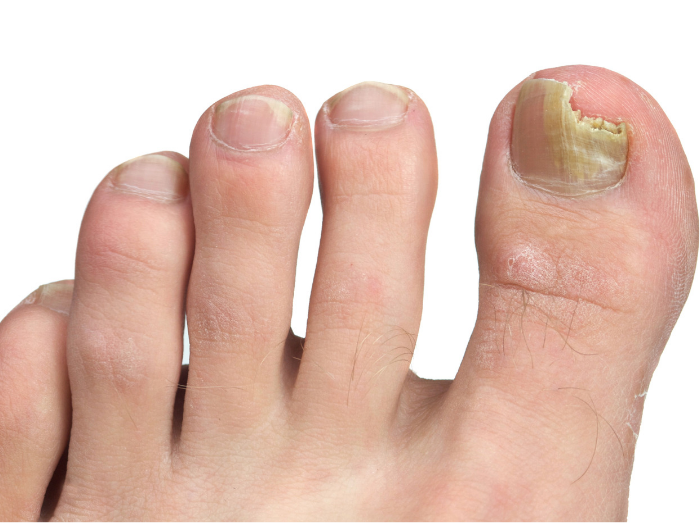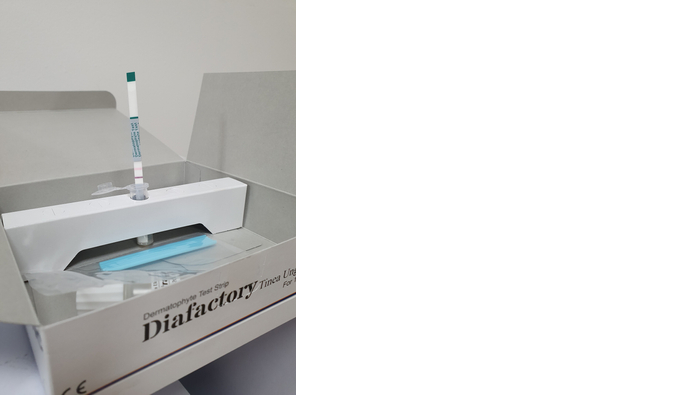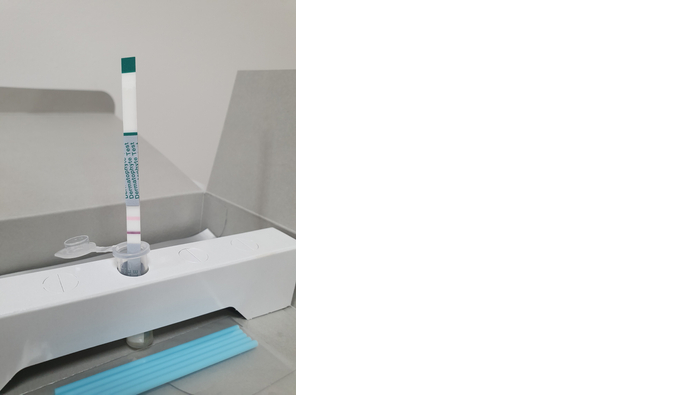Have you got a fungal nail? Have you been treating it for months with no effect? Are you sure that it is definitely a fungal nail you are treating?
Every week I see lots of patients who come to me for fungal nail treatment. Usually they have tried every over the counter fungal nail treatment available, along with all the weird treatments google suggests to use for fungal nails, to no avail.

About half of these patients won’t actually be suffering from fungal nails. They could be suffering from thickened and discoloured nails due to trauma (one off or repetitive), a damaged nail due to psoriasis or an infection of the nail which either isn’t caused by a fungus or caused by a fungus that isn’t susceptible to the main antifungal ingredient found in over the counter treatments.
Studies have shown that even experts in the field of fungal nails (dermatologists & podiatrists) at very best can only be around 67% accurate by visual diagnosis meaning they still get 1 in 3 diagnoses wrong. Clinical guidelines and published research demonstrate it is best practice to test a sample of the nail for fungus before commencing treatment. That way causes of discoloured nails other than fungus, can be ruled out and by testing the nail we remove the risk of patients treating (and paying) for expensive treatments which will not work for the condition you have.
So how can we test the nail to confirm the presence of fungus?
Currently there are 2 main ways to test your nail:
GP test
You can take a clipping of your nail and your GP can arrange for this to be sent off to a laboratory where they can test to see if fungus grows. If it does, the type of fungus and what it is best treated with is reported. This test is free to you (covered under NHS), but your GP does have to agree to test the nail. The process can take up to 6 weeks to get a result, but isn’t highly sensitive. We find there are a lot of false negatives and many get returned as there isn’t a large enough sample to test. You are unable to have this test after any antifungal agents on the nail, so these need to be stopped and fully removed before a sample is taken.
5-minute test in clinic

For the last couple of years, a new test for the presence of the most common type of fungus (dermatophyte infection) has been available to professionals with a specialist interest in nail conditions. Its aptly named 5-minute fungus because a result appears in 5 minutes. This means we can test your nail in clinic at your first appointment to clearly and definitively know what we are treating. A treatment plan will then be discussed and put in place knowing we are treating the right condition with the right treatment options. It is far more accurate than the GP test, almost 100% (97%) accurate and doesn’t require a very large sample to ensure a result is given. The test can be completed with topical antifungals on the nail plate.
How does it work?

The test works by a process known as immune-chromotography, which is also found in a pregnancy test. It contains an antibody that specifically reacts with a chemical found in the dermatophyte infection which causes most fungal nail infections. When an infected nail sample is added to the solution this chemical is released and picked up by the test. A pink line occurs in the test strip to confirm the test has worked whilst the appearance of a purple-brown line below it confirms the presence of fungus in the nail.
How much does it cost?
The test costs £40, and you will have a confirmed diagnosis within 5 minutes. From this test result we can recommend successful fungal nail treatments including topical treatments, clearanail, or oral tablets. This treatment plan can then be started at or just after this assessment appointment avoiding delay to treatment. If the test comes back ruling out fungus as the cause of the damaged nail, alternative conditions can then be explored and further tests arranged if required. A different treatment and management plan can then be discussed. Unfortunately this test isn’t available on NHS currently.
If you think you have a fungal nail, or you have been treating what you think is one unsuccessfully for several months or more, contact us today, to let us get a clear diagnosis and treatment plan for you.


